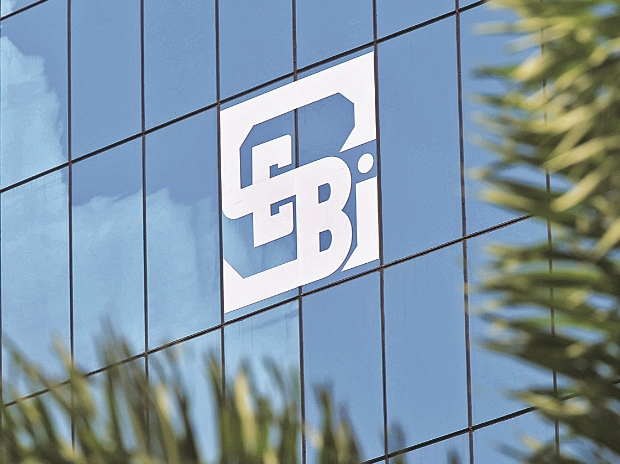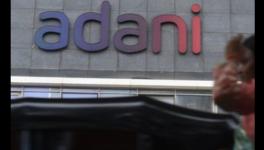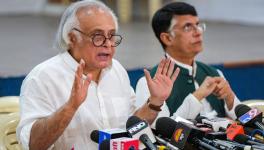SEBI’s Proposal to Allow ESOPs for Independent Directors is Dangerous and Conceptually Flawed

Image Courtesy: Business Standard
The Securities and Exchange Board of India (SEBI) has floated a consultation paper for review of regulatory provisions related to Independent Directors (ID) of the companies listed on the stock exchanges. Comments can be sent on or before April 1, 2021.
SEBI’s proposals have been endorsed by a number of corporate governance experts. Some of the proposals are indeed good. But at the cost of sounding contrarian, many of the key ones need serious introspection and debate. SEBI’s intentions may be noble but its proposals are highly porous. In the interest of brevity, this article looks only at some of these proposals and highlights some others which have been overlooked.
APPOINTMENTS
A system of “dual approval” has been proposed in case of initial appointment of IDs. This would necessitate both the approval of the shareholders and the majority of the “minority shareholders”. Minority shareholders are defined as shareholders other than the promoter and the promoter group.
Before this proposal could be celebrated, it was diluted.
In case dual approval is not obtained, a cooling off period of 90 days is proposed. Then, within the next 30 days, the listed entity must either: (1) propose a new candidate for appointment, OR, (2) propose the same candidate for a second vote of all the shareholders but without the separate requirement of the approval of the majority of the minority.
Inherent flaws: Firstly, this will lead to the promoters having their way sooner or later. This dilution is all the more surprising since SEBI’s consultation paper reeks of its lack of trust in the promoters (a separate concern). What will then prevent the promoters from influencing a minority of the “minority shareholders” to have the requisite numbers, if required at all? A special resolution requires only 75% vote. In many listed companies, public shareholding is still below 25%.
Such a hapless situation could lead to the minority shareholders abstaining from voting even in the first instance. Why would anyone vote if it is not going to be finally counted. I had written about this in my blog of April 2019, although that was in a political context. But the logic is relevant here too. The victim of this would be the independence of the ID. The proposal is therefore self defeating.
Secondly, no cap has been proposed on the number of times the process can be repeated. This could lead to the company being burdened with extra cost besides diverting focus from its business.
Suggestions: (a) It is suggested that the total attempts be capped at two, and (b) in case, the deadlock remains, appointment should be done through the data bank of senior professionals to be maintained by the central government. The modalities can be debated and discussed, but most importantly, this will ensure that the requirement of appointing the IDs is not defeated on the plea of lack of effective approvals.
ESOPs:
Presently, IDs can be remunerated through fees for attending board meetings and profit-linked commissions. SEBI’s consultation paper itself records the concern that profit or performance linked commission may encourage short-termism and lead to conflicts. It instead proposes permitting ESOPs for IDs with long vesting period, say five years.
The inherent flaws: The remedy proposed by SEBI is worse than the disease. If profit-linked commissions can encourage short-termism, then will the ESOPs not exacerbate the problem? It seems that the SEBI has forgotten quite soon what happened with Satyam.
Satyam was a profitable company. However, to project a rosier picture which would improve its market capitalisation, its erstwhile Chairman started fiddling with the books, initially on a small scale. But then, to show higher growth and profits, the scale of manipulation increased each year till it reached a stage where, by his own admission, he did not know how to get off the tiger.
The value of ESOPs is directly linked to the track record of profit and future growth. Surely it could not be SEBI’s intention that Satyam should be repeated many times over.
In any case, ESOPs are meant to retain full time employees for a long term. IDs, by definition, do not fall within this category. This proposal therefore needs to be junked immediately.
Suggestion: To retain the independence and attract the best talent, IDs should be paid a fixed remuneration just like other advisors. The amount should be left to the discretion of the shareholders.
SEBI’S PERCEPTION OF THE ROLE OF IDS
SEBI’s impractical approach on various counts needs a complete overhaul. Firstly, it expects the IDs to be the panacea for all corporate evils. Secondly, it expects the IDs to be fully responsible for running the company. Thirdly, while it has made the appointment of IDs mandatory, its skewed approach shuts out the best talent. Fourthly, it distrusts the promoters completely and shows scant regard for their contributions. This author had commented on some of this issues way back in March 2015.
SEBI needs to recognise that the IDs’ engagement with any company is limited to a mere few days in a year. Their primary role is to think and act independently and bring a healthy balance between the interests of the promoters and other stakeholders including minority shareholders. They should participate in overall vision, strategy and oversight without any responsibility to deliver profits.
Expecting anything more from IDs will be self defeating. IDs can only review the proposals placed before them. What happens if they are bypassed systematically can be illustrated with the following simple example:
Presently, all Related Party transactions need approval of the Audit Committee, which is mandated to have at least 2/3rd of IDs. Past experience has shown how hundreds of shell companies are created by unscrupulous promoters in which peons and drivers are made directors. These shell companies are used for funds diversion, round tripping of funds and various other malpractices.
It would be fool hardy to expect companies to disclose any dealings with shell companies to the Audit committee. The IDs can only approve the proposals that are put to them. Therefore, to expect that with appointment of IDs, all related party transactions will henceforth be holy is mere wishful thinking.
OUT OF BOX THINKING REQUIRED
To address such problems, it is imperative to ensure that key managerial persons and the Executive Directors vote formally on all proposals put to the Board to ensure accountability, transparency and completeness.
The SEBI should also stop distrusting the promoters. The India of today would not have been possible without the sterling contributions of Tata, Birlas, Wadias, Kirloskars, Mahendras, Goenkas, Modis, Shrirams, Muthoots just to name a few. Just because there are some black sheep, it is not fair to paint everyone with the same brush. Global and recent examples that come to mind of promoter-led companies include Tesla, Alibaba, and Amazon.
Most importantly, SEBI needs to appreciate that “Might is right” is not a good corporate practice. It should review its proposal for modification of composition of NRCs (Nomination and Remuneration Committee) to include 2/3rd IDs against the extant requirement of the majority of IDs.
For any relationship to grow fruitfully, mutual trust and respect is must. If it is to make any difference, one ID with conscience is sufficient.
To ensure that IDs can voice their opinion freely without the fear of removal, it may not be a bad idea to think of a limited guaranteed term, say two years. Similarly, two consecutive terms of five years each could be shortened to retain objectivity and impartiality.
But most importantly, SEBI must devise systems to ring-fence the IDs from being victimised for the misdeeds of the others. “Minimum remuneration, maximum liability” does not work. Liability of IDs must be streamlined so that it does not deter high-quality professionals from joining company boards. The Confederation of Indian Industry (CII) has now sought exclusion of IDs from vicarious liability under the Companies Act, 2013, something that I had alluded to in my blog of March 2015.
THE GOOD PROPOSALS
Harmonisation of “cooling of period” to thee years for all categories before they can be appointed as IDs is a good proposal. Similarly, prescribing a “cooling off” period of one year before an ID, resigning on grounds of personal reasons, work commitments, can join another company as an ID is welcome. The same restriction would also apply in case of any ID transitioning to the role of Whole Time Director.
MINIMUM REGULATIONS, MAXIMUM ENFORCEMENT
Quality always trumps quantity. Had SEBI adopted this approach, it would not have taken it more than five years to realise that to ensure independence, prior approval of shareholders must be taken for appointment of Independent Directors. But better late than never.
SEBI would do well to follow the mantra of “Minimum regulations, maximum enforcement”. At the end of the day, actions speak louder than words.
But for the immediate, SEBI must make it mandatory to follow the “dual approval” approach without any dilution, as cautioned above, for appointment of Independent Directors (ID). On the other hand, it must immediately jettison its proposal for allowing ESOPs to IDs.
(Sarvesh Mathur is a senior financial professional and has worked as CFO of Tata Telecom Ltd and PricewaterhouseCoopers in the past. Views expressed here are personal.)
Get the latest reports & analysis with people's perspective on Protests, movements & deep analytical videos, discussions of the current affairs in your Telegram app. Subscribe to NewsClick's Telegram channel & get Real-Time updates on stories, as they get published on our website.
























